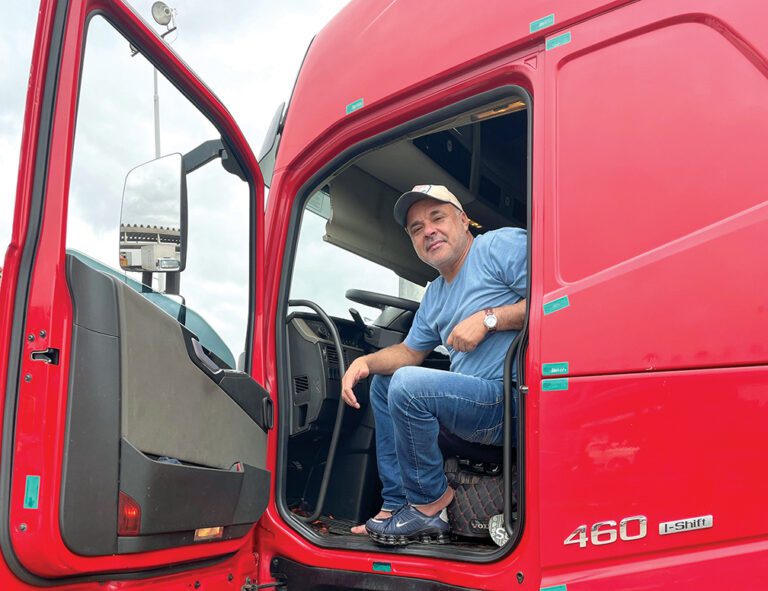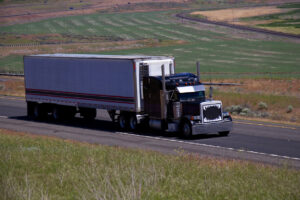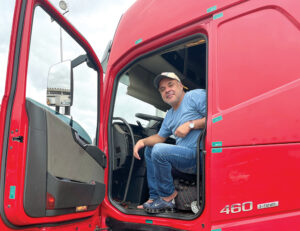On a recent trip to visit family in Brazil, I had a chance to visit Ceagesp Market in central Sao Paulo. Ceagesp is the third-largest wholesale marketing center in the world, only behind those in Paris and New York, and provides fresh produce to several Brazilian states and other Latin American countries.
On a daily basis, this extensive network of warehouses, located in the center of Sao Paulo for 54 years, receives and distributes 250 tons of fresh fruit, vegetables, fish, flowers and various other products, and circulates 50,000 people and 12,000 vehicles.
My first visit to the market was quite different from what I expected. What started as a quick stop to buy fresh fruit and vegetables for the week became an unexpected cultural experience for this American gringo. Given my personal interest in the trucking industry, along with my respect and appreciation for truck drivers, my attention naturally went to the hundreds of trucks that were loading and unloading around the numerous warehouses that make up the market.
It was mesmerizing to watch this intricate operation. In addition to the thousands of truck drivers, vendors and other laborers I saw busily working at the market, the vibrant colors and aromas of the fresh produce, live music and food vendors bring an indescribable energy and atmosphere to Ceagesp.
Watching the drivers loading and unloading their wares, I quickly realized that if it wasn’t for them, a big portion of Latin America would not have fresh food to eat. Seeing the hundreds of trucks parked in and around the warehouses was just a reminder of the integral part that trucking plays in keeping any economy moving around the world.
Communicating through translator Douglas Sobrinho, I visited with some of the drivers and workers at the market, including driver Marcos Vilanova Salina.
Like most truckers at the market, Salina drives for his family-owned trucking business. He hauls meat to Sao Paulo and Rio de Janeiro from Campo Grande, Mato Grosso do Sul, which is one of the top cattle-producing states in western Brazil. Salina returns to Campo Grande with fruits and vegetables that he picks up at the Ceagesp Market. His regular route is about a 2,000-mile round trip.

Salina has worked as a driver and diesel mechanic for nearly three decades. During our conversation, it quickly became evident that he has a passion for and intense love of trucking. However, driving trucks in Brazil does come with a unique set of challenges.
Although Brazil has hours-of-work regulations, they are not closely monitored or enforced. Salinas said it is not unusual for him to drive 24 hours without stopping, to ensure his freight is fresh when delivered.
Brazil’s highway system is comprised of both private and federal roads. Private roads (usually toll roads) are maintained by private companies and are generally in better condition than federal roads. Although trucking companies pay annual governmental registration fees for their trucks, Salina said he doesn’t believe most of this money is used for its intended purpose of maintaining federal roads.
Certain areas of Brazil carry a higher risk of theft; because of this, most motor carriers purchase insurance for additional protection. Some roads are riskier than others. Salina said he has never been robbed while driving, but he knows it’s common based on stories he’s heard from other drivers.
Higher-valued freight increases the risk of theft of both the cargo and the truck itself. For example, Salina said, there is a much higher level of risk when carrying meat from his state to Rio de Janeiro and Sao Paulo than when returning with fruits and vegetables, due to the value of the freight.
Because of this, insurance carriers have strict restrictions for drivers who haul freight through certain parts of the country. When crossing the border from Mato Grosso do Sul to the state of Sao Paulo, Salina’s insurance company only allows him to stop in federal police stations or in one of only three authorized gas stations for any reason — food, shower, sleep, fuel. If he decides to stop in any other location, the insurance does not cover any loss associated with the truck or freight.
There is an even greater risk of being stopped and robbed when driving in mountainous regions, where slower speeds are required. For example, when driving through the state of Rio de Janeiro, Salina is required to have an armed security escort before descending from the high elevation to the sea-level city of Rio de Janeiro.
To help reduce the risk of theft, many trucks are equipped with a special GPS and security system; if the truck cab door is opened outside of the authorized areas, the truck transmission automatically shuts off and becomes inoperable, making it more difficult for the truck to be stolen.
For Salina, dealing with the high risk of theft on the road is not unusual — it’s simply part of his day-to-day routine. Despite these challenges, Salina said he loves his job and that he loved sharing his story with me. He also told me that his biggest dream is to visit the U.S.








